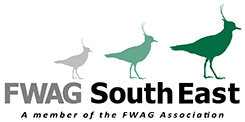


FWAG South East Farm Advice
Agri-environment Schemes
In 2024 a new scheme, Environmental Land Management scheme or ELM will begin. More information will be shared when there are more details.
For more information on ELM please click here
FWAG South East have successfully completed hundreds of agri-environment schemes under all its guises. We can offer our support through all aspects of the application process and beyond:
- talk you through your options to decide on the best course of action
- fully prepare and submit applications
- liaise with Natural England to ensure your application meets all requirements
- assist with gathering evidence and record keeping throughout the life of the scheme
- produce any relevant management plans to support the scheme
- create bespoke maps of your farm and options to assist with the implementation of the scheme
- provide on-going advice during the life of the scheme
Existing Countryside Stewardship agreements and Capital Grants
What will happen
The Mid Tier offers revenue payments and grants to protect and enhance the natural environment, in particular the diversity of wildlife and water quality.
The Higher Tier is for more environmentally significant sites, commons and woodlands.
A range of Capital Grants are also available to support improved water and air quality and for hedgerows and boundaries, and for woodland management plans and tree health.
Who is eligible
This is for:
- arable farmers or land managers
- livestock farmers or managers
- forests or woodland managers
- growers
Existing grants and payments
You can apply for:
- Woodland creation, maintenance, management and tree health incentives offered by the Forestry Commission

Countryside Stewardship
Applications are now closed
The success of an application depends on selecting the right options for the right places. Your local FWAG South East adviser can help you develop an application that maximises the value for your farm business and the environment. This could include:
- Discussion your aims and priorities
- Farm survey and consultation to maximise chances of success
- Producing a CountrysidStewardship option and Environmental Features map
- Subsequent support for queries and reviews of progress
To order your application pack online, login to your Rural Payments account and click on the Countryside Stewardship title. Within Countryside Stewardship there are five options to choose from, these are listed below.
Wildlife Offer
Applications now closed
The Wildlife Offer is non-competitive and offers a limited range of options that give broad environmental benefits such as providing habitats for pollinators and buffering boundary habitats.
There are four Wildlife Offers available to fit farm types: Arable, Upland, Lowland Grazing and Mixed Farms.
There are no capital grants are available and typically a more rounded agreement will be made by completing a full Mid-Tier application.
Mid Tier
Applications now closed
The Mid Tier scheme offers management options and capital items to achieve simple, but effective environmental benefits.
The application is competitive and scored based on the delivery of local priorities, such as water quality and protecting priority habitats. Scoring can be enhanced by: Farm Wildlife and Wild Pollinator Package delivery, endorsement by a Catchment Sensitive Farming Officer (CSFO, where applicable) or being part of a Facilitation Group.
Agreements last for 5 years and some options may need approval from Natural England (NE), CFSO, Environment Agency or planning permission, such as for traditional orchards, wetlands, species-rich grassland or water quality.
Higher Tier
Applications now closed
The Higher Tier scheme targets environmentally significant sites, such as nationally important Sites of Special Scientific Interest (SSSI), Scheduled Ancient Monuments, commons and woodlands. Options reflect the wide, complex management and capital items needed for these habitats and features.
Initially you will be invited by NE to apply, or you should complete an Initial Application. If woodland is included in the application, the Woodland Management Plan must be approved or approved in principle before the initial application is submitted. You will know by early June 2021 whether you have been successful. If successful, you will develop a final Higher Tier application.

Capital Grants
Application deadline: Open from January 2024
These standalone Capital Grants are 3-year agreements offering capital items to achieve specific environmental benefits within 4 groups:
1) Boundaries, Trees and Orchards
2) Improved Water Quality
3) Improved Air Quality
4) Improved Natural Flood Management
For all the information on what’s available please see the application guidance:
Woodland Support Grants
Application deadline: None
These grants can be applied for at any time after 3 January 2024.
Protection and Infrastructure grants: Protection and Infrastructure grants are for capital items that support improving the management of woodland and to help manage the impact of beaver behaviours.
Woodland Management Plan Grant: This is a one-off payment to create a UK Forestry Standard compliant ten year woodland managment plan. This payment is not competitive and calculated on a flat rate payment depending on area (ha). A Forestry Commission Woodland Officer will oversee the plan.
Woodland Tree Health: The grant is not competitive and covers two years. A woodland officer will assess the application to ensure the grant is appropriate and evidence of diseased trees will be required. If an application is submitted in autumn/winter it may not be processed until spring when the infection can be confirmed. There are two elements:
1) Health restoration – restocking woodland after felling due to a tree health issue
2) Health improvement – removal of diseased trees and infected rhododendron





